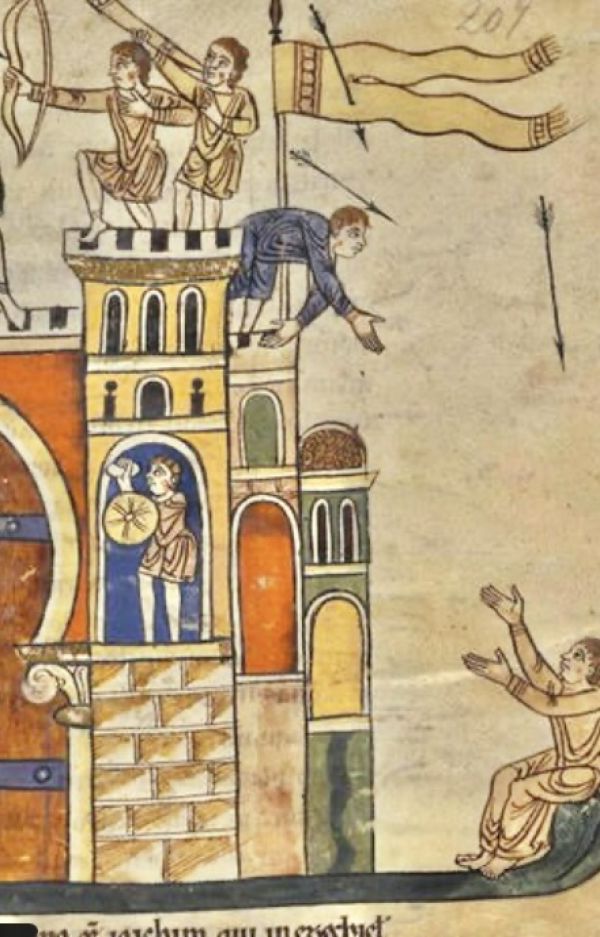Weeping over the eternal city, with tears of a father, mother and son
(Lk 19:41-44)
We like to be in the wake of fashion or opportunism, but rejecting the Lord’s Call is a great responsibility.
We must recognize His Visit, in Presence, in the inspiration that emerges.
Scrutinizing the signs, seizing the moments of grace instead of closing stubbornly; and do not turn back.
All this changes life in root - guides to the heart of history [even in its breaking places].
Jesus wants to conquer the closed doors of every citadel; above all of the toughest bone: Jerusalem.
Sometimes the search for the divine and human tension are made vain, because of a world of the sacred that seems under the sign of a completely different ‘deity’.
In fact, the choice of an ideology of power feeds illusions - but leads to disaster the entire people.
By blurring the gaze, it doesn’t allow us to get rid of the most insidious idols, and distorts the path to the Shalôm.
Once, here are trenches, killings and destruction of the walls and houses by Nebuchadnezzar; then the Roman one of 70 which the text more directly alludes to.
But the gloomy prediction extends, and perhaps the image of the pile of ruins concerns us. Historical background, ecclesial and pastoral meditation.
Unfortunately we continue to condemn Jesus-Peace as a criminal to be expelled. Situation that drags problems.
Thus in filigree the Christ stands out in the position of King, who reluctantly pronounces a definitive sentence.
Where salvation is prepared, offered and re-proposed so intensely but in vain, rejection becomes certainly more painful - for us and for this passionate, moving Son.
Yet the class of the elect still chooses to fall and ruin, self-destructing their own people.
Rejecting the Messiah as a servant and ignoring even in time the work of Good of its authentic witnesses, the religious centre will continue to lose its special character of a saving sign.
Even today it’s time for the Master’s Visit, who knocks and asks for permission to enter, to open the seals of the great questions of history and life.
The warning is global, communitarian and personal; again with tears of father, mother and son.
The encyclical Brothers All [FT] denounces precisely the regression of an extravagant world that - with a sense of the “here and now” shrunken - seems to have learned little from the tragedies of the twentieth century, until rekindling anachronistic conflicts (nn.11.13).
To internalize and live the message:
What do you think is hidden from your eyes, but previously announced - and is crying bitterly?
With what orientation you are willing to live in the «craftsmanship of Peace», even family or social, putting aside the enmities and the ephemeral [cf. FT nn. 57. 100. 127. 176. 192. 197. 216-217. 225-236. 240-243. 254-262. 271-272. 278-285]?
[Thursday 33rd wk. in O.T. November 21, 2024]












